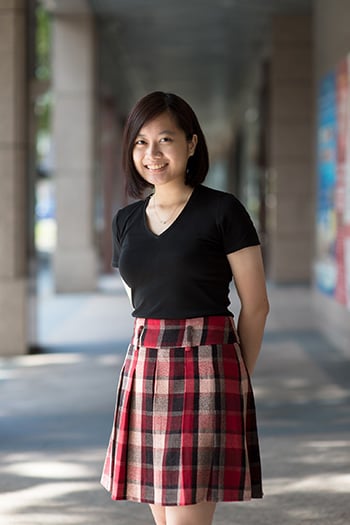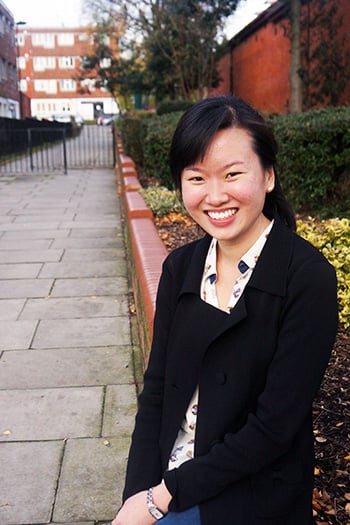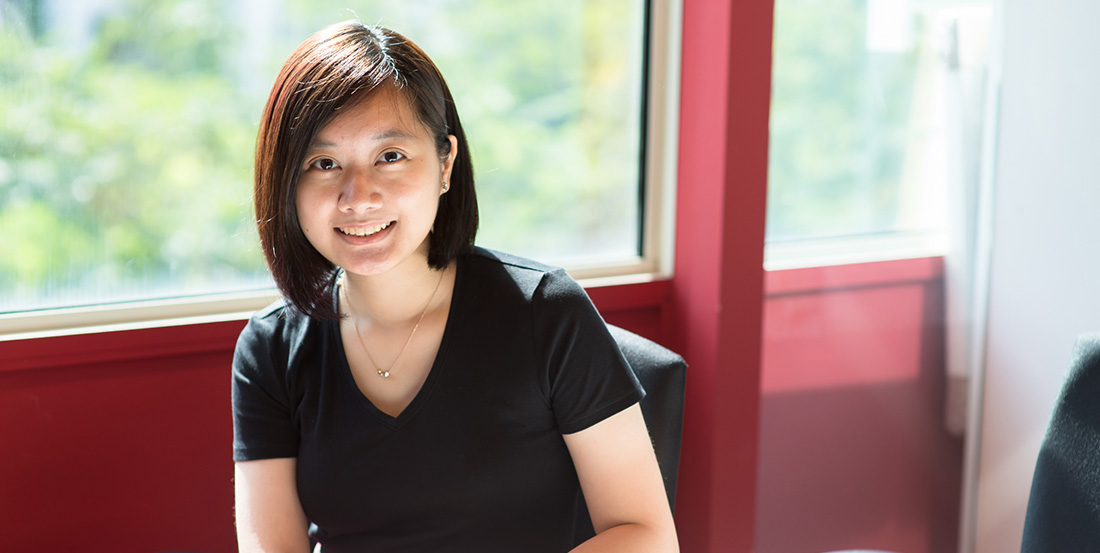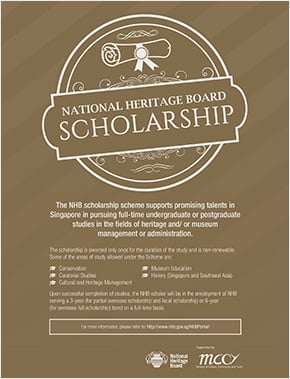Singapore’s main museums – the National Museum of Singapore and the Asian Civilisations Museum – are housed in dignified neoclassical buildings, replete with objects that serve as venerable reminders of our past. The National Heritage Board (NHB) manages these museums as well as supports the education of arts, culture and history buffs by offering them the NHB Scholarship.
Through the scholarship, NHB ensures that its scholars will develop as experienced heritage practitioners armed with specific skill sets, and who are primed to champion NHB’s efforts in strengthening Singapore’s arts and cultural sector.
We talk to two NHB Scholars who tell us why they were drawn to the NHB Scholarship, and how they hope to contribute to NHB’s work of preserving Singapore’s cultural identity.
What attracted you to the arts and heritage industry?
Mandy Lim: I’ve been taking ballet lessons since I was six and the love for this particular dance has seeped into other forms of dance such as tap, jazz and contemporary. I also developed an interest in visual arts through the works of surrealist artists such as René Magritte and Salvador Dalí, and this interest led me to pursue Art as an ‘O’ Level subject.
I also cultivated the love for theatrical performances after watching Cats and Phantom of the Opera on film. My love for various forms of the arts contributed to my decision to pursue the Diploma in Arts Business Management at Ngee Ann Polytechnic, where I was able to understand various art practices from a focused perspective. I knew that I always wanted to pursue a career related to arts and culture because I find the various art forms equally intriguing.
Kezia Toh: I’m particularly interested in the history and museum scene in Singapore. Learning about our history is incredibly exciting – we have to plumb the depths of our past to discover how a road got its name or how a family tradition sprouted its roots.
As children, my brother and I would listen to our parents’ stories on kampong-living in the Jurong area. Our parents’ stories of catching and killing chickens, growing star fruit and submitting themselves to old wives’ tales were all very fascinating. I find joy and meaning in documenting and sharing these precious family stories, told from one generation and passed on to the next.

Mandy Lim Jia Hui
NHB Scholar
Studying: Bachelor of Liberal Arts in Anthropology,
University of Exeter, UK
Studied: Diploma in Arts Business Management,
Ngee Ann Polytechnic
What are some benefits of the NHB Scholarship?
Mandy: The NHB Scholarship is unique in its support of arts and cultural management studies, history and curation. We are given the liberty to choose our course of study as long as it relates to the field. Scholars can expect to interact with and receive guidance from mentors and like-minded individuals who share a similar vision.
The NHB Scholarship gave me the opportunity to undergo a two-month internship stint with the Singapore Night Festival team at the National Museum. Having had experiences as a former volunteer several years ago, I was keen to contribute to the managerial and organisational aspects of this headline event. My internship certainly enabled me to forge new friendships with the staff at the National Museum.
Kezia: The NHB Postgraduate Scholarship aligns well with my interests. It also gives me the opportunity to study in the city of London, where the spread of museums are breath-taking. I have learnt about and seen different types of museums I had never seen or heard of previously, such as an open-air museum or one that used to function as a warship.
The scholarship also provides me with full financial support and links me with a network of other scholars. It is always wonderful to keep in touch with fellow scholars for it allows me to listen to their advice and learn about new developments. I also get monthly updates on what is happening at NHB – being kept in the loop is important and comforting especially when you are living overseas.
Tell us about some of the more interesting modules you take in school.
Mandy: In Anthropology, I learn about different thematic schemes that govern the workings of the world. For instance, even though ‘sex’ and ‘gender’ are often used interchangeably, their implications differ greatly. While sex refers to the biological and physiological aspects of males and females, gender is the cultural articulation of the differences between both. How individuals are viewed then depends on the social construct of each’s gender. This study helps me understand why certain societies can be genuinely egalitarian while others struggle to come close.

Kezia Toh Li Min
NHB Scholar
Studying: Master of Arts in Museum Studies, University College London, UK
Studied: Bachelor of Communication Studies,
Nanyang Technology University
Kezia: I am taking a module called Collections Management and Care and as part of the course, I went to Portobello Road market’s antique section to purchase an object – a snuff bottle for 12 pound sterling – around which I designed my own imaginary museum.
Throughout the term, I learnt how to design possible storage solutions for my object. I also photographed it, incorporated it into my imaginary museum’s collection and tagged and labelled it. This is a practical course I enjoy because it gives me a rounded view of the process by which a regular object becomes a museum artefact, which in turn changes the object’s status and significance. This practical know-how will help me communicate well with conservators and better understand the complex process by which museum collections are built.
What are some of the challenges you have faced?
Mandy: Understandably, when one enrols into a new environment, it can be a struggle to assimilate new information. Many of my peers already had substantial knowledge in anthropology, archaeology and sociology because they were exposed to it at Junior College, while these subjects were entirely new to me.
I’ve also met numerous students who scrutinised my choice of study. I remember how some of them would approach me and say, “So what are you digging up today?” when they knew I was taking a module in archaeology. This only goes to show that a certain stigma still exists and that there is a need for people to stretch their mindsets and cultivate a broader perspective.
Kezia: The biggest challenge so far has been in overcoming the process of uprooting myself and settling in a new country. However, my experiences of living and working alone have taught me to become more independent.
My overseas experiences have also allowed me to meet others who are equally passionate about museums and the heritage sector. My cohort is an international group – we are made up of students from Brazil, Turkey, the UK, Greece, Taiwan and the US, to name a few. Interacting with and working alongside each other allow us to form networks that might be useful in the future, as we serve in the heritage sectors in our respective home countries.
What are some of your professional goals? What advice do you have for aspiring NHB scholars?
Mandy: I see myself in the Education and Community Outreach Division in NHB. I am motivated by the beneficial qualities of art and its effect on people. Rather than as an afterthought or something that’s swept behind drawers, I want arts and culture in Singapore to be seen for what it is worth.
NHB Scholars need to love their work and the community. They also need to work hard – when it comes to work, hard work is of paramount importance and talent is secondary.
Kezia: I’m open to the various posting opportunities at NHB. I would love to build on and further my skills of relating to people and telling their stories.
I want to weave a part of the tapestry that forms the Singapore story, by making our heritage story even more accessible, engaging and captivating.

